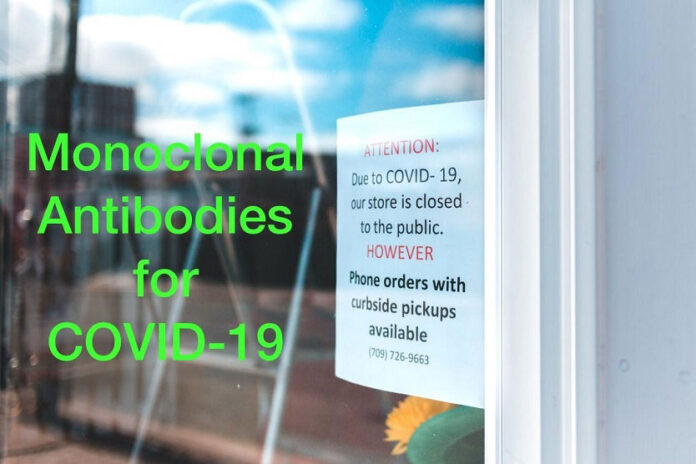Existing biologics such as Canakinumab (monoclonal antibody), Anakinra (monoclonal antibody) and Rilonacept (fusion protein) can be exploited as therapeutics that restrain inflammation in COVID-19 patients. In addition, designer monoclonal antibodies can provide passive immunity by neutralizing the SARS-CoV-2 virus to prevent infection
Drug Discovery is changing its course from small molecule drugs to biologics which consists of proteins and monoclonal antibodies as therapeutics. This is because of higher specificity leading to higher efficacy of protein-based drugs and lower side effects when compared to small molecules. Antibody-based therapeutics that restrain inflammation constitute one of the largest biologic drug families in the biotech/pharmaceutical sectors.
The recent pandemic of COVID-19 makes it more pertinent to identify and prescribe treatments using repurposing of existing drugs1 to combat COVID-19 disease. One of them is the use of available monoclonal antibodies that can be used against the NLRP3 inflammasome, a novel drug target proposed in my article dated 9th May 2020. This article explained the importance of NLRP3 inflammasome as a novel drug target for the treatment of COVID-192. In this context, use of monoclonal antibodies against IL-1 (interleukin-1)-beta and interleukin-18 (IL-18), which are hall marks of inflammasome activation3, can prove effective against COVID-19 by reducing the inflammation and thus helping the patients.
Currently available Canakinumab, a human monoclonal antibody targeted at IL-1 beta sold under the brand name Ilaris4, is a medication for the treatment of systemic juvenile idiopathic arthritis and active Still’s disease. This can be tried and tested in COVID-19 patients to reduce inflammation and disease progression. In addition, Anakinra, marketed as Kineret®, is a recombinant IL-1 receptor antagonist (IL-1ra) that can be used to block the receptor and prevent the action of IL-1 beta. Another biologic available is Rilonacept (Arcalyst®)4, a dimeric fusion protein consisting of the ligand-binding domain of the human IL-1 receptor and IL-1 receptor accessory protein that can be tried to prevent IL-1 beta activation.
In addition to targeting the downstream consequences of COVID-19, such as the NLRP3 mentioned above, development of designer monoclonal antibodies that can neutralize the virus and provide passive immunity to the population, is also an attractive proposition till a vaccine is developed5,6,7.
***
References:
- Soni, R., 2020. A Novel Approach to ‘Repurpose’ Existing Drugs For COVID-19. Scientific European. Published on May 7, 2020. Available online at http://scientificeuropean.co.uk/a-novel-approach-to-repurpose-existing-drugs-for-covid-19/
- Soni, R., 2020. NLRP3 Inflammasome: A Novel Drug Target for Treating Severely Ill COVID-19 Patients. Scientific European. Published on May 09, 2020. Available online at http://scientificeuropean.co.uk/nlrp3-inflammasome-a-novel-drug-target-for-treating-severely-ill-covid-19-patients/
- Dolinay T, Kim YS, et al 2012. Inflammasome-regulated cytokines are critical mediators of acute lung injury. Am J Respir Crit Care Med, 185 (11) (2012), pp. 1225-1234. DOI: https://doi.org/10.1164/rccm.201201-0003OC
- Angeline XH Goh, Sebastien Bertin-Maghit, Siok Ping Yeo, Adrian Ho, Heidi Derks, Alessandra Mortellaro & Cheng-I Wang (2014) A novel human anti-interleukin-1β neutralizing monoclonal antibody showing in vivo efficacy, mAbs, 6:3, 764-772, DOI: https://doi.org/10.4161/mabs.28614
- Cohen, J. Designer antibodies could battle COVID-19 before vaccines arrive. DOI: https://doi.org/10.1126/science.abe1740
- Ledford, H. 2020. Antibody therapies could be a bridge to a coronavirus vaccine — but will the world benefit? Nature. Published on 11th August 2020. DOI: https://doi.org/10.1038/d41586-020-02360-y
- NIH.gov 2020. NIH launches clinical trial to test antibody treatment in hospitalized COVID-19 patients. Published on August 4, 2020. Available online at https://www.nih.gov/news-events/news-releases/nih-launches-clinical-trial-test-antibody-treatment-hospitalized-covid-19-patients
***






































